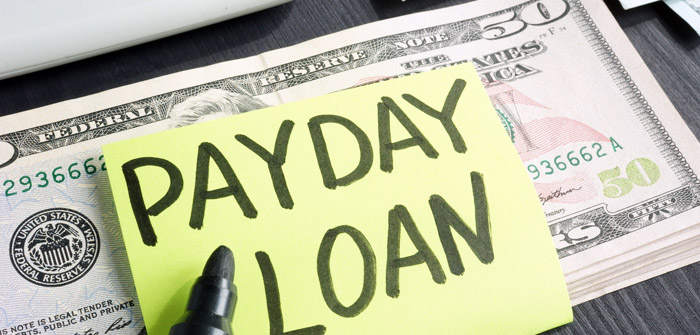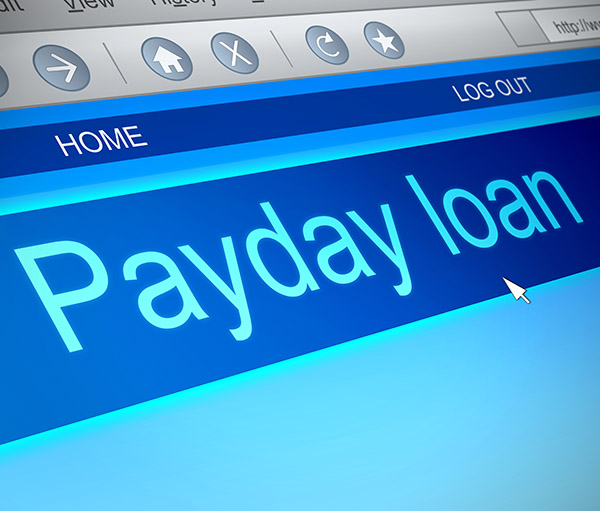Payday loans are a short-term loan type available to people who may have poor credit score and need quick, little cash to cover an emergency, make ends meet, or finance their business. Most payday loans come with a 14-day repayment duration, although lenders adjust the loan’s due date to match the borrower’s payday, thus, the name ‘payday loan.’ Note that when compared to conventional personal loans, payday loan amounts are generally smaller.
Historically, payday loans have been one of the best options for individuals who need funds to quickly cover an unexpected expense. Learn more about payday loans below.
Payday Loans: How Do They Work?
When applying for a payday loan, borrowers will typically be asked to submit proof of their income and checking account information. That’s because a payday loan is a type of loan that’s centered on income.
When applying at a brick-and-mortar lender personally, you can pick up the funds in person once you’re approved. On the other hand, when getting a loan online by e-transfer, you can opt to have your borrowed money automatically deposited in your bank account the following banking day.
When repaying a payday loan, borrowers usually have two options. First, they can authorize the lender to withdraw the value of the borrowed amount, including interest and any other fees, from their checking account in an approved date. Second, borrowers can write a check that the payday lender will cash on a specified date.
Here’s a step-by-step breakdown of how the process works:
Step 1: Taking Out The Loan
- Decide the amount you need to loan. Note that payday loans range from 50 to 100 dollars. The range can be higher, depending on the lender.
- Obtain a registration form at the lender’s store or download one from an online lender’s website.
- Submit your ID, bank account number, and proof of income.
- Get approved and receive the money after acknowledging that you have to repay the loan on your next payday.
Step 2: Repaying The Loan
- Post-date a check at the time you receive the loan amount. Make sure that it coincides with your next payday. Note that other lenders may require you to instead give them permission to electronically debit your bank account with the borrowed amount’s value, plus interest and any other fees.
- The lender would recoup the loan amount either via direct debit or the post-dated check. Note that this will include any fees and the loan’s interest.
Relationship Between Payday Loans And Credit Scores
The credit score range of the borrower isn’t usually an obstacle with payday lenders, especially if you’re getting the loan from an online lending company. Most payday lenders will take a look at many other factors to determine whether you can repay the loan. The credit score is still considered, but not to a great extent. Some of the things they’ll look at, outside of your credit history, are a history of bankruptcy, bad checks, prior wage garnishments, and other outstanding loans.
What Happens If The Borrower Couldn’t Repay The Loan In The Due Date?
Most borrowers struggle to repay their initial loan on time. If ever you missed the repayment deadline, lenders will usually encourage you to roll over the loan. When rolling over your loan, the lender basically adds new finance charges to the existing loan.
Rolled Over Payday Loans: What Do They Look Like?
The average payday loan amount is USD$300. If you get this loan amount with the lowest finance charge possible (USD$15 for every USD$100 borrowed), you’d have a fee of USD$45 on the principal amount of USD$300. That means you’ll repay a total amount of USD$345.
As already mentioned, you’d more likely rollover your payday loan if you couldn’t pay on time. So, from USD$345, your loan will have a new amount of USD$396.75. That would be the new loan amount from the original USD$345 after adding the new round of interest costing USD$51.75.
Where To Get A Payday Loan
Payday loans are a loan type that are typically offered by online and brick-and-mortar lenders. You’ll need to personally visit the lender’s storefront if you want to apply for a loan with a brick-and-mortar lender. On the other hand, when applying with an online lender, you’ll only have to use your computer or mobile phone, and don’t have to leave your home. Both types of lenders bring different benefits, so the choice between the two boils down to personal preference. A lender, whether brick-and-mortar or online, is a good option as long as they’re licensed and certified.
Final Thoughts
It’s best to shop around for the most affordable payday loan before committing to a particular lender. You can check out comparison websites regulated by the FCA or the Financial Conduct Authority to know which lender offers the best deal. Note that the lender is also required to explain to you the loan’s main features, how much you’ll have to repay, and your options when you can’t pay the loan back on time before you sign on the agreement.





